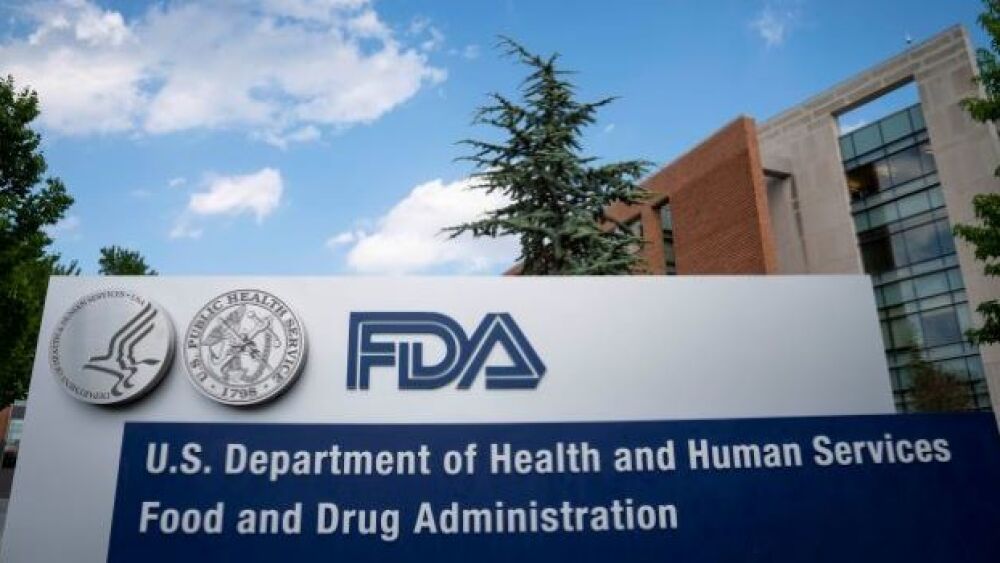An FDA adcomm that met Wednesday to vote on GlaxoSmithKline’s daprodustat for adult patients with anemia due to chronic kidney disease (CKD) produced mixed results.
Courtesy of Sarah Silbiger/Getty Images
An FDA adcomm that met Wednesday to vote on GlaxoSmithKline’s daprodustat for adult patients with anemia due to chronic kidney disease (CKD) produced mixed results.
The Cardiovascular and Renal Drugs Advisory Committee (RDAC) leaned toward opposing the drug for non-dialysis patients and toward approval for the dialysis population.
A final decision is expected by Feb. 1, 2023. The agency is not required to follow the advice of the committee, although it often does. When the votes are mixed, it becomes difficult to predict which way the FDA will fall.
To the question, “Do the benefits of daprodustat outweigh its risks for the treatment of anemia due to CKD in adults not on dialysis?” the committee voted 5 yes and 11 no with 0 abstentions.
Afshin Parsa, M.D., MPH, department of medicine and division of nephrology at the University of Maryland School of Medicine voted ‘yes’ but expressed “potential concerns for increased risk.
However, “much of the concerns can be managed by healthcare providers or patients as long as appropriate warnings for education and other safety warnings are put in place,” he said during the meeting.
C. Noel Bairey Merz, M.D., Smidt Heart Institute at Cedars Sinai, voted ‘no’.
“I felt we met the primary outcome - it is non-inferior for the primary outcome - but while I don’t think we feel confident there is increased risk, the data we heard today leaves us uncertain about the increased risk…. I think we need more information about the risk,” he said.
Patients on Dialysis
To the question, “Do the benefits of daprodustat outweigh its risks for the treatment of anemia due to CKD in adults on dialysis?” the committee voted 13 yes and 3 no with 0 abstentions.
“In this patient population, efficacy was met,” said Christopher O’Connor, M.D., Inova Heart and Vascular Institute, who voted ‘yes’. “I felt the safety signals in the cardiovascular space appeared more favorable than the ESA.” He added that the patients needed to be carefully monitored while being treated.
Javed Butler, MD, MPH, chair of the department of medicine at the University of Mississippi Medical Center, was ultimately not convinced of the benefit.
“When looking at the totality of evidence across these two patient populations … the way the heart data were collected, as well as other data, were all of concern to me,” he said. “In terms of the benefit, I was not totally convinced of the use case for the benefit for these patients.”
The Data Behind the Vote
Daprodustat is an oral hypoxia-inducible factor prolyl hydroxylase inhibitor (HIF-PHI). GSK developed the drug to offer a convenient oral treatment for patients with anemia associated with CKD.
Data from five studies of the Phase III ASCEND program built the submission to the FDA. The program demonstrated the drug hit its primary efficacy endpoint in each trial, showing an improvement in hemoglobin (Hgb) levels in untreated patients and maintaining Hgb levels in patients with anemia of CKD.
Additionally, the cardiovascular outcomes studies for non-dialysis (ASCEND-ND) and dialysis patients (ASCEND-D) showed the drug was non-inferior compared to an erythropoiesis-stimulating agent (ESA) in terms of risk of Major Adverse Cardiovascular Events (MACE). This was the co-primary endpoint of both studies.
The FDA’s briefing documents focus on the risk-benefit profile of the drug.
Although the briefing documents note the studies provided similar results to ESAs, they did not include how patients felt about having an oral drug option. Instead, they examined potential safety risks.
In the patients who were dialysis-dependent, there were risks of hospitalization for heart failure and bleeding gastric erosions. FDA documents indicate that although daprodustat didn’t “unacceptably increase” the risk of MACE, this wasn’t true for the non-dialysis-dependent patients.
In that cohort, daprodustat appeared to have additional risks along with risks of heart failure and bleeding gastric erosions, including “elevated estimated” risks for heart attack and stroke.
ESAs have similar risks, although the FDA expressed concern that daprodustat may increase those risks.
ESAs include Amgen’s Epogen and Janssen’s Procrit.





